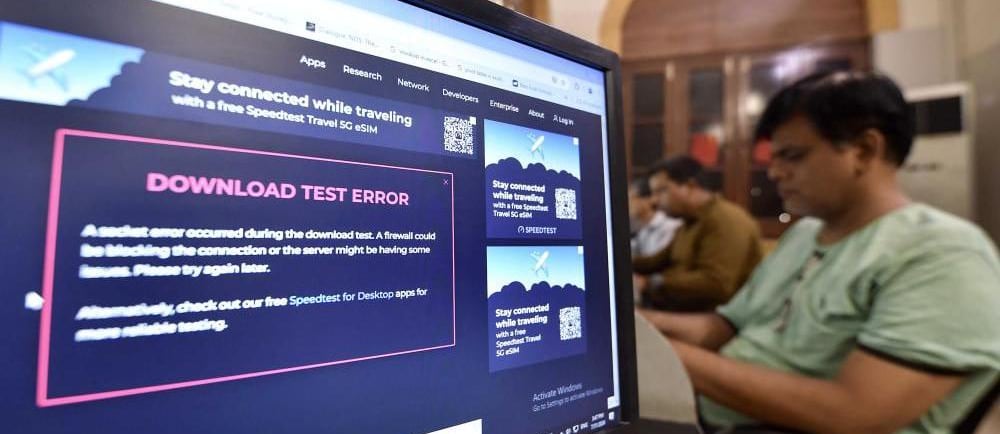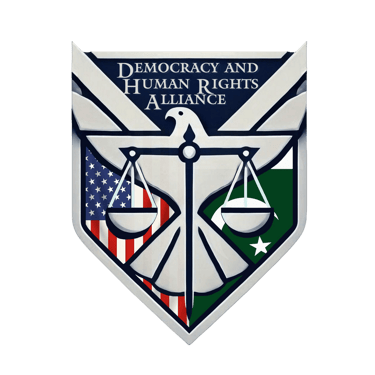Internet Censorship in Pakistan 2024
How Internet Control Threatens Freedom, Democracy, and Economic Stability
Digital Darkness:
Digital Darkness: Internet Censorship in Pakistan 2024
In 2024, Pakistan's internet landscape has witnessed an alarming rise in censorship, with severe restrictions on digital freedom affecting citizens, businesses, and democratic processes. The government's actions have led to widespread internet shutdowns, social media blockages, and increased surveillance, deeply impacting the nation's economy and the people's right to information.
LANDING
9/22/20242 min read


In 2024, Pakistan's internet landscape has witnessed an alarming rise in censorship, with severe restrictions on digital freedom affecting citizens, businesses, and democratic processes. The government's actions have led to widespread internet shutdowns, social media blockages, and increased surveillance, deeply impacting the nation's economy and the people's right to information.
Internet Shutdowns and Social Media Blockages
The year 2024 saw Pakistan endure multiple instances of internet blackouts and social media restrictions, especially around politically sensitive events. One of the most significant disruptions occurred in February 2024, during the general elections when access to major social media platforms like X (formerly known as Twitter) was entirely blocked, leaving citizens unable to share information or express opinions about the electoral process. These shutdowns have been part of a broader trend, with digital rights advocacy group Access Now reporting that internet connectivity in Pakistan was disrupted for a total of 694 days between February 2022 and December 2023【146】.
The government’s actions, including blocking social media platforms such as Facebook, YouTube, and WhatsApp, were often justified under the guise of "security concerns." However, these restrictions were widely seen as attempts to stifle dissent and manipulate the flow of information, especially regarding protests and political activities【147】.
The Implementation of a National Firewall
Pakistan has also started to implement a national firewall, similar to the infamous Great Firewall of China, to control online traffic and limit political expression. Digital rights advocates, such as the Islamabad-based Bytes for All group, have gathered evidence showing that the government is using sophisticated methods like HTTP blocking to restrict access to certain platforms【146】. These measures pose a severe threat to free speech and further restrict citizens' ability to share information and express their views openly.
Economic Impact of Internet Censorship
The effects of these internet restrictions have been devastating for Pakistan's economy. The Pakistan Software Houses Association (P@SHA) estimated a financial loss of $300 million due to prolonged internet outages and VPN disruptions, and there’s a real fear of a potential mass exodus of IT companies if such restrictions continue【146】. The telecommunication sector alone faced losses of up to $2.85 million due to these shutdowns【147】.
Furthermore, internet speeds have drastically declined, with a reported drop of 30-40% across the country, affecting not only businesses but also everyday citizens who rely on the internet for communication and accessing essential services【146】.
VPN Usage and Government Crackdown
In response to the government’s internet restrictions, the use of Virtual Private Networks (VPNs) has surged among Pakistani citizens, with Proton VPN reporting a staggering 6,000% increase in sign-ups during a social media blackout in May 2023【146】. However, the government has since announced plans to regulate VPN usage, making it increasingly difficult for citizens to bypass online censorship and access restricted platforms.
What Can Be Done?
The Democracy and Human Rights Alliance strongly condemns these actions that infringe on the fundamental right to freedom of expression. We advocate for a free and open internet that allows citizens to express their views, access information, and engage in democratic processes without fear of government censorship or surveillance.
It is crucial for citizens, civil society, and the international community to stand together against these repressive measures. The fight for digital freedom in Pakistan is not just about internet access—it's about defending the very principles of democracy, transparency, and human rights that every individual deserves.
For more details on the ongoing situation, refer to the reports by TechRadar and HackerNoon.


